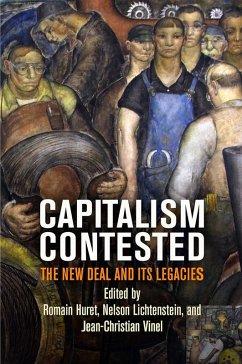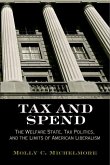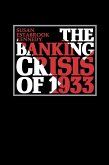In the historical narrative that prevails today, the New Deal years are positioned between two equally despised Gilded Ages-the first in the late nineteenth century and the second characterized by the world of Walmart, globalization, and right-wing populism in which we currently live. What defines these two ages is an increasing level of inequality legitimized by powerful ideologies, namely, Social Darwinism at the end of the nineteenth century and neoliberalism today. In stark contrast, the era of the New Deal was first and foremost an attempt to put an end to inequality in American society. In the historical longue durée, it appears today as a kind of golden age when policymakers and citizens sought to devise solutions to the two major "questions"-labor on one side, social on the other-that were at the heart of the American political economy during the twentieth century. Capitalism Contested argues that the New Deal order remains an effective framework to make sense of the transformation of American political economy over the last hundred years. Contributors offer an historicized analysis of the degree to which that political, economic, and ideological order persists and the ways in which it has been transcended or even overthrown. The essays pay attention not only to those ideas and social forces hostile to the New Deal, but to the contradictions and debilities that were present at the inauguration or became inherent within this liberal impulse during the last half of the twentieth century. The unifying thematic among the essays consists not in their subject matter-politics, political economy, social thought, and legal scholarship are represented-but in a historical quest to assess the transformation and fate of an economic and policy order nearly a century after its creation. Contributors: Kate Andrias, Romain Huret, William P. Jones, Nelson Lichtenstein, Nancy MacLean, Isaac William Martin, Margaret O'Mara, K. Sabeel Rahman, Timothy Shenk, Elizabeth Tandy Shermer, Jason Scott Smith, Samir Sonti, Karen M. Tani, Jean-Christian Vinel.
Hinweis: Dieser Artikel kann nur an eine deutsche Lieferadresse ausgeliefert werden.
Dieser Download kann aus rechtlichen Gründen nur mit Rechnungsadresse in A, D ausgeliefert werden.
Hinweis: Dieser Artikel kann nur an eine deutsche Lieferadresse ausgeliefert werden.









